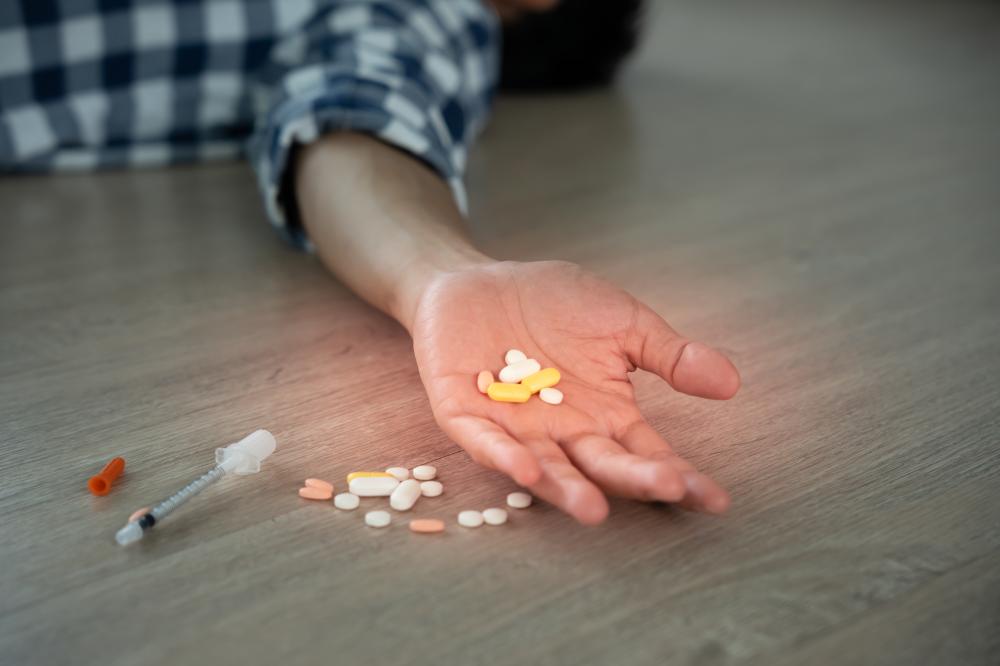Addressing Opioid Addiction in Somers Point
Individualized Treatment Approaches
The Role of Clinical Counseling
Addressing Social and Environmental Factors
Holistic Approaches for Addiction Management
Support Services Beyond Treatment
The Importance of Mental Health Treatment
Navigating the Path to Recovery
Overcoming Challenges in Addiction Recovery
Why Park Bench Recovery Stands Out

Addressing Opioid Addiction in Somers Point
Opioid addiction is a crisis affecting countless lives in Somers Point. The opioid epidemic's pervasive nature demands urgent attention, and effective treatment is critical for recovery. The battle against addiction in this community has been embraced through intensive and tailored approaches that respect each individual's journey.
In the heart of Somers Point, rehabilitation centers like Park Bench Recovery are committed to making a difference. These centers provide comprehensive treatments for opioid addiction focusing on the whole person. The emphasis is not just on overcoming addiction, but on rebuilding lives from the ground up.
Individualized Treatment Approaches
Personalized Plans for Recovery
Each person’s battle with opioid addiction is unique, which necessitates tailored treatment plans. At Park Bench Recovery, the emphasis is on individualized care. Treatments are carefully crafted to address personal histories, specific triggers, and particular needs of each client. This personalized approach helps in fostering a deeper connection and commitment to recovery.
By offering a variety of programs such as Partial Hospitalization, Intensive Outpatient, and Outpatient options, Park Bench Recovery ensures that the level of care matches the severity and stage of addiction. These programs allow flexibility and support, empowering individuals to engage in treatment without disrupting their daily lives excessively.
The Role of Clinical Counseling
Clinical counseling is a cornerstone of opioid addiction treatment Somers Point. It provides a space for individuals to understand the underlying causes of their addiction. At Park Bench Recovery, counseling is conducted by experienced professionals who use evidence-based therapies to guide patients toward recovery.
Cognitive Behavior Therapy (CBT) and Dialectical Behavior Therapy (DBT) are two major therapeutic techniques employed at Park Bench Recovery. These therapies focus on modifying the behaviors that lead to addiction and instilling coping mechanisms that avoid relapse. Combined with motivational interviewing, these therapies aid clients in building resilience and a positive mindset.
Furthermore, involving family members in counseling can enhance recovery. By providing family support, addiction treatment centers create a nurturing environment that facilitates healing and long-term sobriety.
Addressing Social and Environmental Factors
Social and environmental factors play a crucial role in addiction recovery. Factors such as family dynamics, community influences, and peer relationships can significantly impact the recovery process. Park Bench Recovery integrates these elements into their treatment philosophy, working closely with families and local communities to support recovery efforts.
Community integration is essential for individuals recovering from opioid addiction. By connecting clients with community resources and support groups, Park Bench Recovery helps them transition smoothly back into society. This encourages the development of positive social networks and reduces the risk of relapse.
In some instances, recreational activities are incorporated into treatment plans to strengthen social bonds and promote a healthy lifestyle. Such activities provide an outlet for stress and foster connections that can be pivotal in maintaining sobriety.
Holistic Approaches for Addiction Management
Holistic therapy is a growing trend in addiction treatment, focusing on healing the mind, body, and spirit. At Park Bench Recovery, holistic approaches are integrated into traditional treatment plans to enhance overall well-being. Methods such as yoga, meditation, and art therapy provide alternative avenues for managing stress and reducing dependency on opioids.
By combining holistic techniques with traditional therapies, clients at Park Bench Recovery experience a well-rounded approach to recovery. This comprehensive method not only aids in detoxification and mental health improvement but also promotes healthier lifestyle changes that support long-term recovery.
Through holistic practices, individuals learn to reconnect with themselves and find inner peace. This self-awareness and mindfulness are essential for overcoming addiction and sustaining a drug-free life.
Support Services Beyond Treatment
Recovery from opioid addiction doesn't end with treatment; it requires ongoing support and resources. Park Bench Recovery provides a robust set of support services designed to assist individuals as they transition from treatment to everyday life. These services play a pivotal role in the success of long-term recovery.
Alumni programs and peer support groups are available to offer ongoing encouragement and connection. These networks provide safe spaces for individuals to share experiences, challenges, and triumphs, fostering a sense of community and shared purpose.
The Importance of Mental Health Treatment
Mental health is closely linked to addiction, and treating both simultaneously is vital for effective recovery. Park Bench Recovery understands the interconnection between substance abuse and mental health disorders and addresses these issues in tandem. This dual-approach ensures that mental health conditions are not overlooked and are treated alongside addiction.
By using therapies that target both addiction and mental health, such as Recovery Therapy, Park Bench Recovery provides a comprehensive approach to healing. Treating these aspects together enhances the individual’s capacity to deal with stressors and reduces the likelihood of relapse.
Navigating the Path to Recovery
The path to recovery from opioid addiction is challenging and requires courage and support. At Park Bench Recovery, the journey is shared with a dedicated team committed to walking alongside each individual. By offering continuous guidance and by adapting to the evolving needs of their clients, Park Bench Recovery helps demystify the path to sobriety.
Maintaining an open line of communication with recovering individuals and their families is crucial. It ensures that everyone involved feels informed, supported, and empowered in the recovery process. This transparency can make a significant difference in the recovery experience.
Overcoming Challenges in Addiction Recovery
Overcoming addiction is fraught with challenges, but with proper support, individuals can triumph over these obstacles. Park Bench Recovery is equipped to handle the hurdles that often arise during recovery, such as withdrawal symptoms, cravings, and emotional distress.
By preparing clients for potential setbacks and arming them with tools and strategies to overcome these challenges, Park Bench Recovery fosters resilience. Clients learn that setbacks can be part of the process, not a marker of failure, and that each step forward is progress.
The staff's commitment to each person's recovery ensures a compassionate response to the challenges faced, further supporting the path to healing.
Why Park Bench Recovery Stands Out
Park Bench Recovery stands out in the realm of opioid addiction treatment in Somers Point due to its holistic and individualized approach. The center is deeply rooted in the local community, providing a supportive and familiar environment that aids recovery.
The diverse range of programs and therapies available ensures that every aspect of the individual's well-being is addressed, from mental health to social reintegration. This comprehensive approach empowers clients to not only achieve sobriety but to thrive in their recovery journey.
The center's belief in the power of community and family involvement makes it a beacon of hope for many. By providing a full circle of care, Park Bench Recovery makes it clear that no one is alone in their fight against addiction.

What is used to treat opioid addiction?
Treating opioid addiction often involves a combination of medications and therapy. Common medications include Methadone, Buprenorphine, and Naltrexone, each working differently to help manage withdrawal symptoms and reduce cravings. These medications are typically part of a broader treatment plan that includes counseling and behavioral therapies. At Park Bench Recovery, we focus on integrating these medical treatments with individualized therapy to address the root causes of addiction.
What is the drug of choice for opioid addiction?
The choice of medication depends largely on the individual’s specific situation and needs. Methadone, Buprenorphine, and Naltrexone are the primary medications used. Buprenorphine is often preferred because it can be administered in an outpatient setting, which offers more flexibility. At Park Bench Recovery, we personalize treatment plans to ensure that each person receives the medication most suited to their recovery path.
What is the most common support group for addicts?
Narcotics Anonymous (NA) is one of the most widely recognized support groups for individuals recovering from addiction, including opioid addiction. It provides a community of peers who share experiences and support each other. At Park Bench Recovery, we also emphasize the importance of community support and offer alumni programs to maintain connections long after formal treatment ends.
How do people recover from opioid addiction?
Recovery from opioid addiction is a multifaceted process that requires both medical and psychological interventions. It involves overcoming physical dependence through detoxification and medications while addressing psychological aspects through therapies such as Cognitive Behavioral Therapy (CBT) and Dialectical Behavior Therapy (DBT). At Park Bench Recovery, we provide a supportive environment where individuals can build the skills needed for lasting recovery and reintegration into their communities.
How does Park Bench Recovery address the social and environmental factors affecting recovery?
At Park Bench Recovery, we recognize that social and environmental factors can greatly influence recovery outcomes. To address these, we work closely with families and local communities, encouraging involvement in treatment and providing resources to aid reintegration. Our approach includes building positive social networks through community resources and support groups, which are crucial for reducing the risk of relapse. This holistic approach ensures that clients have a solid support system throughout their recovery journey.
Why is mental health treatment crucial in opioid addiction recovery?
Mental health treatment is vital in opioid addiction recovery because mental health disorders often co-exist with substance use disorders. Addressing these concurrently can improve overall treatment outcomes. At Park Bench Recovery, we use integrated treatment strategies that combine mental health care with addiction treatment. By doing so, we are able to provide comprehensive care that helps individuals manage their mental health conditions, reducing the likelihood of relapse and promoting a more sustainable recovery.
